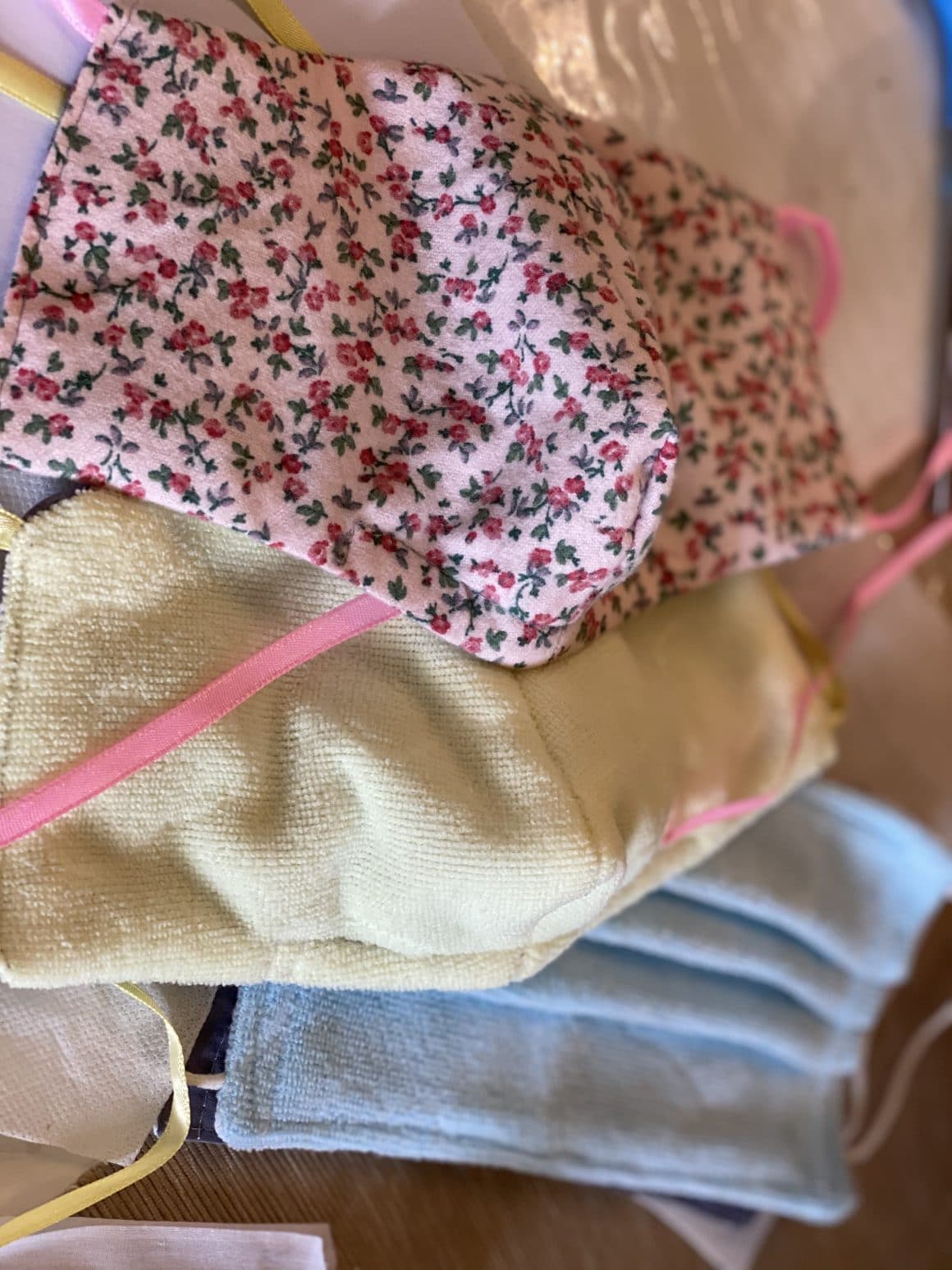The Makerspaces Responding To Coronavirus in Iraq
People face many situations in life. Some are positive and bring us joy, whilst others carry challenges that make us realise things we did not before. Some situations can be more difficult to accept than others. However, the perceived difficulty of any situation depends on that person’s personal experiences and outlook. Though some may find quarantine to be extremely tough, others may be enjoying the time they have at home.
Coronavirus in Iraq and across the world has given us a collective experience that will make us rethink our approach to difficult situations and how we must adjust.
Does Hardship Cause Creativity?
Many inventions and ideas were not things that came out of the blue. While some may have been strokes of luck, more often than not they require persistent effort and perseverance.

Some creative solutions and ideas have come from difficult circumstances and the way we manage them. An example of this is Dr. Viktor Frankl’s psychotherapeutic approach of Logotherapy, which “focuses on the search for the meaning of human existence”.
In his book, Man’s Search for Meaning, Dr Frankl describes his experience as a prisoner in a Nazi concentration camp. During this difficult time, Viktor kept thinking about his family and had a strong hope of being reunited with them once he was freed. He wanted to overcome this crisis in order to be happy with them again. The misery of his situation motivated him to think positively and relieve him in a way that helped him overcome this calamity.
“The way a person accepts his destiny and accepts all the suffering he carries, and the way he faces his ordeal, all this creates a great opportunity – even in the darkest circumstances – to add to his life a deeper meaning…”.
Viktor Frankl, Man’s Search for Meaning
The Response to Coronavirus in Iraq
So far, Iraq has 1482 confirmed cases of Coronavirus and 81 deaths. In response to the pandemic, the public and private sectors have been providing solutions to the most immediate needs. Most interesting are the local manufacturing solutions that makerspaces in Iraq have been leading on.

What is a Makerspace?
A makerspace is a workspace that gathers people with interests in electronics, digital technologies, personal manufacturing, and even handicrafts. These people come together to share experiences, knowledge, and ideas and create projects and innovations. Makerspaces are open to children, entrepreneurs, and adults and offer a wide variety of equipment such as 3D printers, CNC machines, sewing machines, and more.
Individuals who create things are called ‘makers’. Makers tend to be creative with an interest in design. A makerspace gives makers access to tools and raw materials so that they can produce items. All makerspaces are fuelled by the concept of the maker movement.
The maker movement is known as a cultural trend that puts value on an individual’s ability to be a creator as well as a consumer. It encourages local manufacturing solutions as it is based on the principle do it yourself (DIY).
In response to the Coronavirus crisis, these makerspaces in Iraq are collaborating with the government, hospitals and citizens to manufacture and distribute protective equipment and items necessary to limit the spread of the virus.
Science Camp
Face masks have become a symbol of protection against the Coronavirus. Mouth coverings are widely believed to reduce the risk of someone transmitting the virus.

In response to the need for face covers, Basra-based makerspace Science Camp produced its own design. Their transparent face shield is simple, lightweight, and adjustable, and can even fit over glasses. The design does not require any special parts or adhesives and can be created with commonly found materials.
Our goal is to focus on those who are fighting the virus on the frontlines as they are in direct contact with infected people. This shield works to protect from spits, as regular masks alone are not enough.
Nawres Arif, Co-founder of Science Camp
A unique element of their design is that no part of the cover directly touches the face or head, unlike other face covers used across the world. These face shields were created with PET, commonly found in plastic cups and bottles, and are provided by a plastic factory in Basra. The design is easily scalable and can be used anywhere.
Science Camp is collaborating within the local crisis task force (Industrial Coordination Chamber) that includes maker spaces, academia, local government, and local industry. At the time of writing, over 7000 face shields have been produced and distributed to hospitals across six governorates in Iraq, in addition to Basra.

Mosul Space
A makerspace and innovation centre in the heart of Mosul, in partnership with Field Ready, Mosul Space provides a maker and co-working space, in addition to training programs to encourage entrepreneurship and creativity. The space is equipped with a range of manufacturing tools and is a home for Muslawi youth interested in technology.
Since the liberation of Mosul from Daesh in 2017, the city’s health sector has yet to be rebuilt and lacks the necessary materials and equipment needed to respond to the crisis effectively. In support, the Mosul Space team is creating products to aid the health sector in Mosul.

So far, the team has created face shields using a laser cutter and are able to produce 40 masks every 45 minutes. The design is open-source and available for anyone to use. They are also prototyping an electronic foot-operated sink, which is hands-free and contains pedal control valves operated by the knee or foot. These sinks can be combined with any spout or separate outlet for hygienic water supply.
Field Ready
Field Ready is an international organisation that operates a Makerspace in Erbil, and works in partnership with IoT Maker in Baghdad and Mosul Space in Mosul. With the support of the German Federal Government through the Deutsche Gesellschaft für Internationale Zusammenarbeit (GIZ) GmbH, their goal is to encourage local manufacturing solutions using technology and to create a network of local makers.
Our work in Iraq is about enabling people to make the things they need, where they are needed and when they need them. We do this through our makerspaces to build the skills of young people in digital manufacturing and create links with universities and industry to support the innovation ecosystem.
Susan Long, Field Ready Innovation Lead, Middle East Region.
In response to Coronavirus in Iraq, Field Ready is supporting home-based solutions whereby people can sew their own masks at home for themselves and their community. In collaboration with the Baghdad Ministry of Health, the team is creating simple, how-to instructions on creating two types of masks:
- A simple cloth mask that covers the face and nose. Typically used for running errands and shopping.
- A mask with a filter that covers the face and nose. Used for high-risk areas. The filters can be obtained from household items such as vacuum bags or air conditioners.
The instructions for creating these masks will be available in Arabic and Kurdish with designs that have been approved by medical authorities worldwide. The aim is to provide accurate information for people to create their own masks using household materials. This fits into the larger goal of creating a network of citizens that are responding to the crisis.
Other items that Field Ready are creating include UVC sterilisation boxes, handwashing stations for healthcare facilities in refugee camps, and tools to open doors without touching them. These items have been requested by local non-profit organisations and hospitals to support in tackling Coronavirus.
Manufacturer Database
Field Ready is also in the process of creating a database of workshops and skilled people to scale their work across the country. Each Field Ready makerspace will prototype and get feedback from hospitals, non-profit organisations, and government based on the needs of each institution. The manufacturing will then be outsourced to local workshops in order to increase the scale of production.
In the case of creating face shields, foot-operated sinks, and sewed masks Field Ready is utilising their network of local workshops to share these designs and ultimately create thousands of protective items for the use of hospitals and community groups. If you are a workshop and would like to join the database, complete this form.
With Every Challenge Comes Opportunity
Coronavirus in Iraq has provided us with new products and innovations, and above all, an opportunity for partnership and collaboration between different sectors across the country.
A growing network of innovators in Iraq are willing to share their designs and ideas so that they are implemented locally. Using technology and recyclable materials, the teams at Science Camp, Field Ready and Mosul Space provide affordable manufacturing solutions that can be learned and leveraged by the wider community.
There are creations and changes that we would not have seen if it hadn’t been for the Coronavirus crisis, whether it is a new face shield design, reduced pollution, the growth of the e-commerce industry, or companies adopting work from home policies for the first time.
Although it is a difficult time for the world, the crisis has had some positive effects by giving birth to new initiatives and pushing people to use and create digital solutions.
What will you do differently whilst in quarantine? Comment below!






7 Comments
?♥️??✨
I never thought that there were such creative people in Iraq, this really encouraging.
Awesome, Allah bless those talented makers ?
This is amazing
Great job Fatima your articles are always distinct
[…] The Makerspaces Responding To Coronavirus in Iraq […]
[…] حياتنا الحديثة مبنية على التكنولوجيا ونحن فضوليون بشكل عام حيالها – خاصة أثناء الحجر الصحي! تساعدنا التكنولوجيا على الاستجابة لفيروس كورونا. […]
[…] Click here to download the full report […]